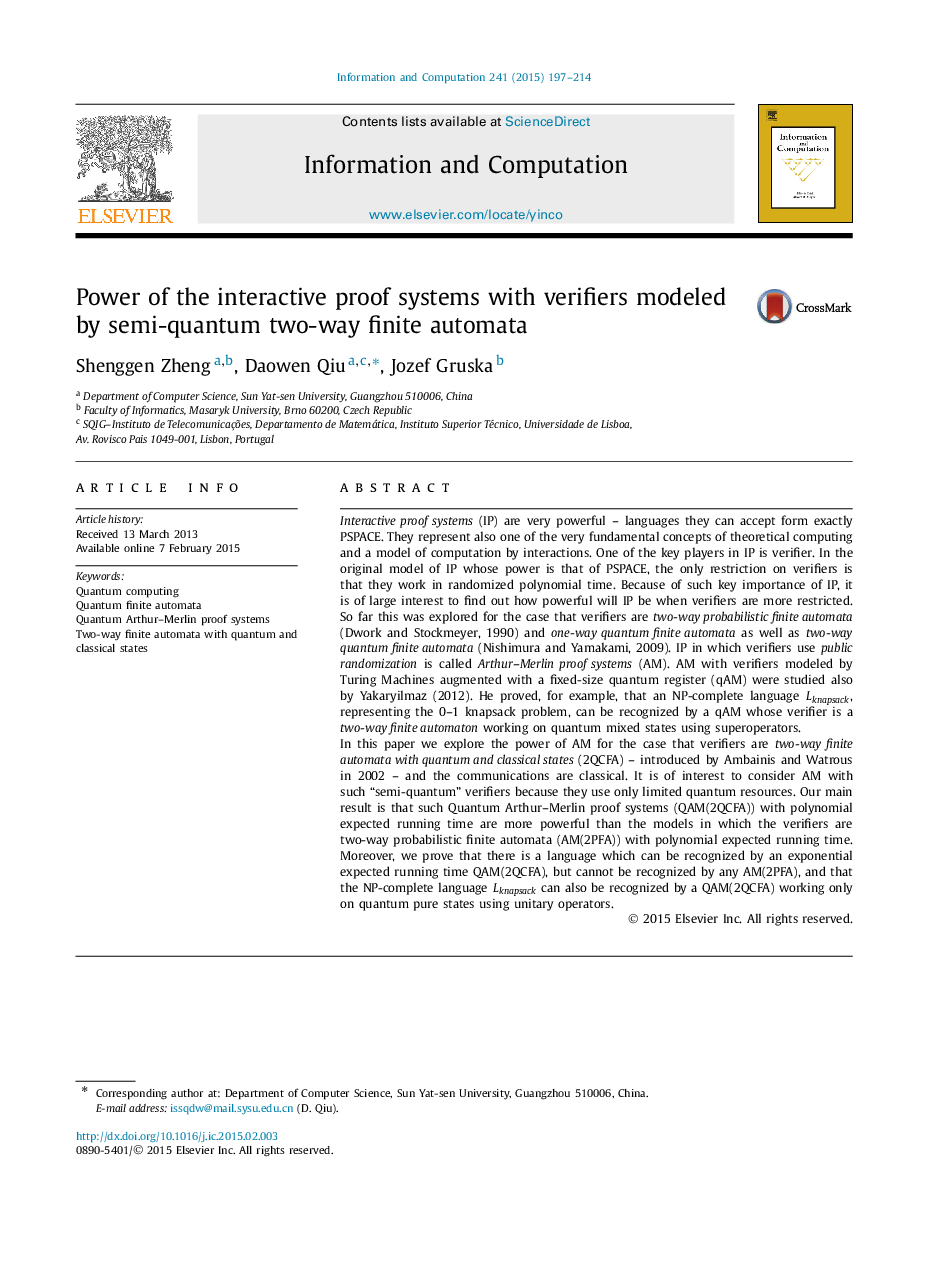| Article ID | Journal | Published Year | Pages | File Type |
|---|---|---|---|---|
| 6874017 | Information and Computation | 2015 | 18 Pages |
Abstract
In this paper we explore the power of AM for the case that verifiers are two-way finite automata with quantum and classical states (2QCFA) - introduced by Ambainis and Watrous in 2002 - and the communications are classical. It is of interest to consider AM with such “semi-quantum” verifiers because they use only limited quantum resources. Our main result is that such Quantum Arthur-Merlin proof systems (QAM(2QCFA)) with polynomial expected running time are more powerful than the models in which the verifiers are two-way probabilistic finite automata (AM(2PFA)) with polynomial expected running time. Moreover, we prove that there is a language which can be recognized by an exponential expected running time QAM(2QCFA), but cannot be recognized by any AM(2PFA), and that the NP-complete language Lknapsack can also be recognized by a QAM(2QCFA) working only on quantum pure states using unitary operators.
Related Topics
Physical Sciences and Engineering
Computer Science
Computational Theory and Mathematics
Authors
Shenggen Zheng, Daowen Qiu, Jozef Gruska,
